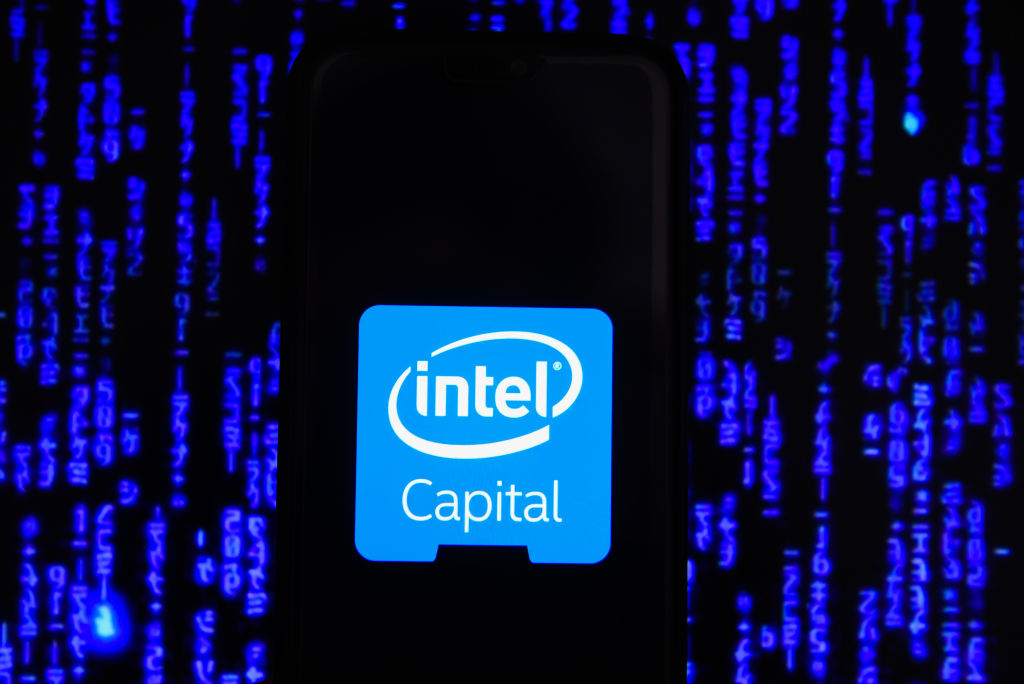A look at Intel Capital before the 34-year-old firm strikes out on its own

When Intel Capital announced its plans to spin out from semiconductor giant Intel in January, it came as a bit of a shock considering the firm has been operating as Intel’s venture investment arm since 1991.
In many ways this decision marks the end of an era for what’s considered by some to be the first corporate venture capital firm of all time. The firm was founded nearly 35 years ago and has backed notable enterprise tech companies including: DocuSign, MongoDB and Hugging Face, among nearly 2,000 others.
But for Mark Rostick, vice president and senior managing director at Intel Capital, the transition represents a new opportunity for the VC while allowing the firm to keep many of the benefits it had as a CVC.
Rostick joined the firm back in 1999 after a friend at Intel Capital recommended he should try to get a job there. Rostick, who wasn’t enjoying working as a tech licensing attorney at the time, took her up on it. After he met the team, he said he’d do anything — even mop the floors — to get involved.
“You get to work with the smartest people in the world,” Rostick told TechCrunch. “The hardest thing to do in business is to start something from nothing and get it to literally leave the ground. Those are the coolest people to hang out with because they’re doing something special. The combination of being able to use that training I had [combined] with working with people doing the hardest thing in business, it was irresistible for me.”
Rostick has stuck around for over two decades and seen the firm invest more than $20 billion across more than 1,800 companies while racking up more than 700 startup exits.
The thought of Intel Capital spinning out from its parent company was not a new one, Rostick said, and had been discussed multiple times in the past. The debate always centered on the pros and cons of how the firm would be able move faster, or be more nimble, on its own but also how much the firm would have to give up without a parent company.
But these conversations started to get more serious at the beginning of 2024 and became concrete last fall, Rostick said. He added that him and Anthony Lin, the head of Intel Capital, were able to start getting the team comfortable with the idea of striking out on their own.
“We thought our track record merited attention from outside investors,” Rostick said. “We had done really well, even while, you know, a lot of the venture industry hasn’t been unable to realize exits, we’d had some success doing that, so we felt like we were could position ourselves as a bit of an outlier there.”
He added that Astera Lab’s exit last year helped with their timing. Intel Capital initially backed Astera Labs in 2018. The semiconductor company went public in March 2024 with a $5.5 billion valuation. Astera Labs one year later has an $9.8 billion market cap making it one of the most successful venture-backed exits of 2024.
This success, Rostick said, may have also showed potential LPs that Intel Capital was a firm that was making the right bets and seeing capital returns at a time with very few venture-backed exits. Last year, U.S. venture-backed exits totaled $149.2 billion, according to PitchBook data, which is significantly lower than years like 2019, $312 billion, even when you exclude outlier years like 2021, $841 billion.
It isn’t 100% clear that everyone at Intel Capital was actually on board with the change. At the managing director level alone, there have been multiple departures since these spinoff talks would have started getting serious including: Mark Lydon, Arun Chetty, Sean Doyle and Tammi Smorynski, all of whom had been at the firm for more than 20 years, as originally reported by Axios.
An Intel Capital spokesperson said the recent departures weren’t tied to the news of the firm spinning out.
This move also comes at an interesting time for the firm’s parent company which has had a tumultuous year. Former CEO Pat Gelsinger suddenly retired on December 1 — he had been in discussions with the firm about spinning out, Axios reported. The company has since had to delay the opening of its Ohio chip factory again and decided not to bring its Falcon Shores AI chip to market. It also added Lip-Bu Tan as its new CEO who allegedly has sweeping changes in mind for the company.
Regardless, the spinoff continues.
The firm expects to be fully independent sometime in the third quarter of 2025, Rostick said. The new yet-to-be-named firm will look very similar to Intel Capital now, he added. The firm will keep Intel as an achor investor and will still invest in early-stage startups in the same areas: AI, cloud, devices, and frontier tech, among others. The firm will likely fundraise shortly after the formal spinout.
“We’ve socialized the idea with people, and feel like we’ve gotten a pretty good response,” Rostick said. “We’re not naive. We know it’s going to be a difficult process.”
The success of this new solo firm with be up for the market to decide. But in the meantime, despite everything else, Rostick said the firm largely continues to operate as business as usual.
“We’re investing in new opportunities, actively looking for those,” Rostick said. “We’re maintaining the portfolio by doing follow ons where it’s merited and makes sense for everybody. And, you know, managing portfolio exits as we always would. When we make the switch over, we keep going at the same speed as we have been going today, this has always been the plan.”



